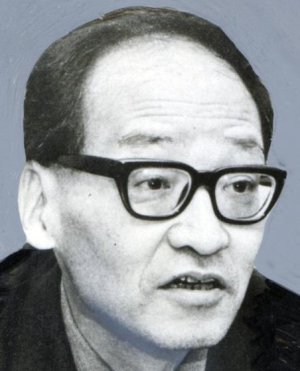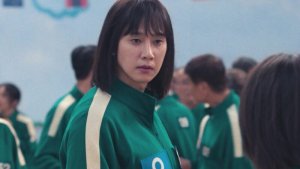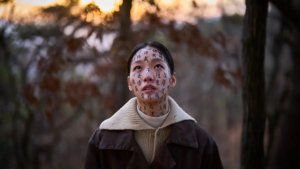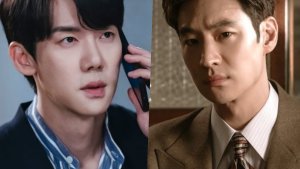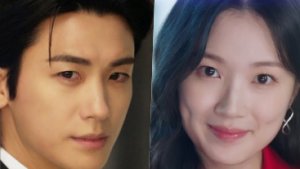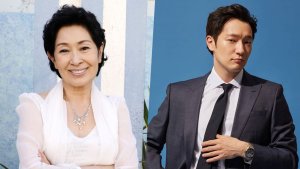Masumura Yasuzo
- Name: Masumura Yasuzo
- Native name: 増村保造
- Nationality: Japanese
- Gender: Male
- Born: August, 1924
- Died: November 23, 1989
He entered the law department of Tokyo University, but his studies were interrupted when he was drafted into the army at the later stages of the Pacific War. As with later Daiei colleague Kenji Misumi, few details are known about Masumura's tenure in the Imperial armed forces, but the fact that he didn't return to Japan until 1947 indicates that he too was likely made prisoner of war after the conflict ended. After dropping out of a law course at the University of Tokyo he worked as an assistant director at the Daiei Film studio in late 1947. joined the Daiei studio as an assistant director in late 1947. This job gained him enough money to finance a return to university to study philosophy. He graduated as a Philosophy Major in 1951, all the while continuing to work at Daiei. He then won a scholarship allowing him to study film in Italy at the Centro Sperimentale di Cinematografia under Michelangelo Antonioni, Federico Fellini and Luchino Visconti. He was the first Japanese to study at Rome.
Masumura returned to Japan in 1953 and worked as assistant to Kenji Mizoguchi and Kon Ichikawa. . From 1955, he worked as a second-unit director on films directed by Kenji Mizoguchi, Kon Ichikawa and Daisuke Ito, before directing his own first film, "Kisses" (1957), with Kuchizuke, which was a commercial success and also won praise from director Oshima Nagisa.. Despite the genre's popularity, Masumura's debut didn't fare well at the box office, due, according to some accounts, to the unusual speed and rhythm Masumura gave the film. What with Japanese film studios each turning out close to a hundred films a year for film-hungry audiences, a single flop didn't carry grave consequences for those involved. All talent was under contract and demand for features was so high that no studio could afford to lay off its employees so easily. Masumura consequently made two more films the same year.
It was his fifth film Giants and Toys (Kyojin to Gyangu, 1958) that brought Masumura his first success and recognition. Although sources report that the mainstream press was largely hostile to Masumura's idiosyncratic style of filmmaking, the director found himself an early supporter in a young Nagisa Oshima, then an aspiring director at Shochiku studios and film critic. In a series of essays, Oshima lauded Masumura for his "sharp sociological perceptions" and claimed the Daiei director as an influence on his own filmmaking - which led to the birth of the Japanese New Wave.
The 1960s saw Masumura coming fully into his own. During this decade he directed his best films, while working at an average pace of three to four films a year. He penetrated the upper echelon of Daiei's director hierarchy - alongside former mentors Kenji Mizoguchi and Kon Ichikawa - and was assigned a succession of prestigious literary adaptations, bringing to the screen the works of Junichiro Tanizaki (Tattoo / Shisei in 1964, Manji in 1965, and Love of an Idiot / Chijin no Ai in 1967), Genjiro Yoshida (Seisaku's Wife / Seisaku no Tsuma, 1965), and Yasunari Kawabata (Thousand Cranes / Senbazuru, 1964), among others.
Masumura's perceptive treatment and critique of Japanese society come to the fore most clearly in his war films, in which all the aforementioned themes tend to combine. In Seisaku's Wife (Seisaku no Tsuma, 1965), Wakao has only her feminine wiles to aid her in her struggle to keep her husband from being shipped off to the front. Acting with total contempt for the customs and traditions of the small countryside village in which they live, she is a complete individual. When the call-up comes and the town eagerly wishes to see Seisaku become their local war hero, she pokes out his eyes so that he is not only unable to fulfil his duties, but also becomes entirely dependent on her.
The director's own experiences on the front obviously and inevitably shaped his excursions into the genre, as they did for the work of many of his contemporaries, including Seijun Suzuki, Masaki Kobayashi and Kihachi Okamoto. Although at face value the drastic measure taken by Seisaku's wife or the nurse's erotic games with an armless soldier could be seen as twisted and disturbed, the insanity of the war against which they take place makes them look positively wholesome in comparison. One of the best examples of this contrast was also one of the director's biggest commercial successes, Hoodlum Soldier (Heitai Yakuza, 1965), which stars Shintaro Katsu as a yakuza reluctantly shipped to the Manchurian front, where he fraternises with a pacifist sergeant (Takahiro Tamura, who also played the draftee Seisaku). The director portrayed the goings-on in the barracks and on the battlefield as utter insanity, making his insubordinate heroes come across as the sanest and most human characters. Throughout Masumura's films - all the way up to his far-out entry in the Hanzo the Razor series, The Snare - perversion (in its original meaning of bending the rules, but also in its more common sexual connotation) and transgression are pathways to personal freedom.
A 1996 ten-day retrospective on Masumura in Rome was attended by Michaelangelo Antonioni who was an admirer. (Source: Midnighteye) Edit Biography
Screenwriter
| Title | Rating |
|---|---|
| The Setting Sun | 0.0 |
| Asobi ja nai no yo, Kono Koi wa | 5.0 |
| Stewardess Monogatari | 7.8 |
| Hanzo the Razor III: Who's Got the Gold? | 7.4 |
| Moeru Kyodai | 0.0 |
| A Killer’s Key | 6.0 |
| A Certain KiIller | 7.1 |
Director
| Title | Rating |
|---|---|
| Kuroi Fukuin | 0.0 |
| Himawari no Uta | 0.0 |
| Akai Shisen | 6.4 |
| Red Shock | 7.3 |
| Lullaby of the Earth | 7.4 |
| Akumyo: Notorious Dragon | 0.0 |
| Asobi | 6.5 |
| Yakuza Zesshou | 7.0 |
| Blind Beast | 7.0 |
| Nureta Futari | 0.0 |
| The Wife of Seishu Hanaoka | 6.5 |
| An Idiot in Love | 6.1 |
| Two Wives | 7.3 |
| Red Angel | 7.4 |
| Nakano Spy School | 7.1 |
| Irezumi | 7.0 |
| Seisaku's Wife | 7.1 |
| The Hoodlum Soldier | 6.2 |
| Manji | 6.8 |
| Love and Greed | 0.0 |
| When Women Lie | 0.0 |
| The Black Test Car | 7.1 |
| Stolen Pleasure | 6.0 |
| A Wife Confesses | 7.3 |
| A Lustful Man | 6.6 |
| Desperate to Love | 6.0 |
| The False Student | 6.0 |
| The Woman Who Touched the Legs | 4.0 |
| Afraid to Die | 6.7 |
| A Woman's Testament | 6.5 |
| Beauty the Enemy | 4.0 |
| The Cast-Off | 3.0 |
| The Most Valuable Wife | 6.7 |
| Oyafuko Dori | 0.0 |
| Giants and Toys | 7.2 |
| The Precipice | 2.0 |
| Aozora Musume | 7.8 |
| Kisses | 7.7 |
Screenwriter & Director
| Title | Rating |
|---|---|
| Kono Ko no Nanatsu no Oiwai Ni | 1.0 |
| The Love Suicides at Sonezaki | 7.0 |
| Dynamic Islands | 1.0 |
| Hanzo The Razor II: The Snare | 6.6 |
| Yakuza Soldier: Rebel in the Army | 0.0 |
| Vixen | 6.0 |
| The House of Wooden Blocks | 0.0 |
| Black Report | 6.9 |
| Warm Current | 6.0 |
Assistant Director
| Title | Rating |
|---|---|
| Manin Densha | 6.0 |
| Tales of the Taira Clan | 6.9 |
Movie
| Title | Rating |
|---|---|
|
Kenji Mizoguchi: The Life of a Film Director
Japanese Movie, 1975,
[Himself]
(Support Role)
|
7.0
|
Trending Articles
Zhao Lu Si's agency addresses fans' concerns about her health
News - Dec 27, 2024
Check out the full statement released by Zhao Lu Si's agency in response to fans' concerns over her weak health
'Squid Game Season 2' Park Sung Hoon under controversy for an adult material post on Instagram
News - Dec 30, 2024
Park Sung Hoon is getting criticized for an Instagram story he posted.
21 best Korean movies of 2024
Editorials - Dec 26, 2024
As 2024 draws to a close, let's take a look at some of the best Korean movies of the year
Song Joong Ki says he's a silly doting father to his daughter
News - Dec 23, 2024
Read Song Joong Ki's interview for his upcoming K-movie Bogota: City of the Lost
'When the Phone Rings's Yoo Yeon Seok, Lee Je Hoon among the nominees for Daesang (MBC Drama Awards)
News - Dec 27, 2024
Check out the full list of nominees for the Grand Prize (Daesang) for MBC Drama Awards 2024
SBS unveils its 2025 K-Drama lineup with special trailers
News - Dec 23, 2024
Check out what SBS has in store for K-drama fans in 2025
MBC Drama Awards 2024 cancels live broadcast due to Jeju Air plane crash
News - Dec 30, 2024
Read the full statement from MBC
Kim Hye Ja and Son Suk Ku will be a married couple in a new JTBC K-drama!
News - Dec 24, 2024
Veteran actress Kim Hye Ja and renowned actor Son Suk Ku are set to make everyone believe in love in a new JTBC K-drama.

